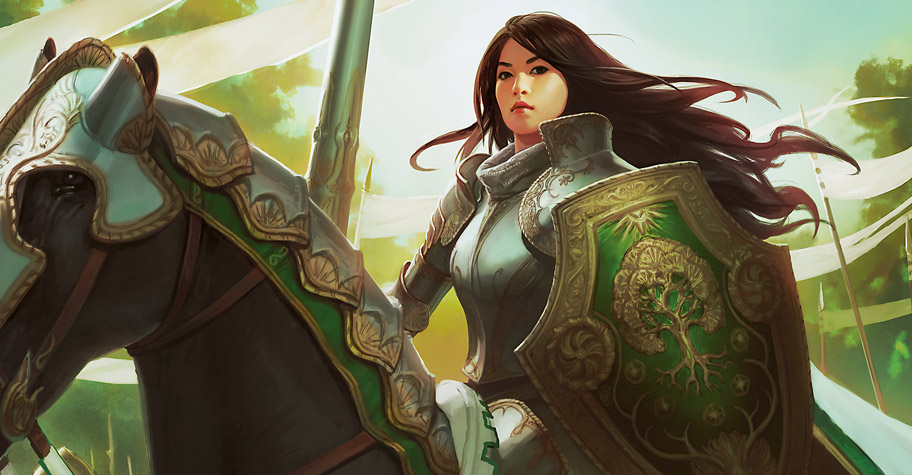The Story We Tell Ourselves
A friend of mine and I were talking a couple of weeks ago about how the stories we tell ourselves shift our worldviews, and it's continued to come up in conversations lately, so I figured I ought to write about it. I heard not too long ago about a therapist who prescribes watching certain types of TV shows or movies to his patients for just this reason. Example: a patient only dates bad boys and keeps getting hurt in relationships. She likes mobster movies. He prescribes watching romantic comedies, where the nice guy often finishes first. There are most likely other elements going on, but eventually, the patient starts seeing nice guys as a positive and stops going after relationships that will eventually turn destructive. Changing the story becomes part of the therapy.

![]()
Art by Jason Chan
Kameron Hurley wrote about this in "We Have Always Fought," an essay about changing the stories we tell ourselves about the role of women, over on Aidan Moher's A Dribble of Ink. (And also llamas. The cannibalistic llama metaphor is brilliant.) And Neil Gaiman talked about the idea of fiction making us see other possibilities for the way the world works at a Book Expo America talk, summed up by Chris Lough at Tor.com. (Gaiman also contended that this is why fiction is dangerous -- because it makes us think new things and question our assumptions.)
This makes me conscious of the stories I'm telling, not only as a writer, but as a mom. I caught myself the other day, playing puppets, having the princess puppet be grossed out by a frog. I realized this error quickly -- why should girls be grossed out by frogs? -- and had the queen compensate for the princess's initial reaction by talking about the awesomeness of being an amphibian. In my writing, I know I tend to think of my characters first as individuals, and then as a product of their genders or races. This may mean that my characters end up being less accurate to their cultural backgrounds -- something I'm always working to correct -- but it does reflect my worldview. Growing up, my parents stressed the importance of thinking of other people first as people, and then as their modifiers. I know I fall into thinking with stereotypes (as I think everyone does now and again). But that story -- of unique individuals -- shapes my thinking and the stories I tell others.
What stories do you tell yourself? What stories do you wish you could change?

Art by Jason Chan
Kameron Hurley wrote about this in "We Have Always Fought," an essay about changing the stories we tell ourselves about the role of women, over on Aidan Moher's A Dribble of Ink. (And also llamas. The cannibalistic llama metaphor is brilliant.) And Neil Gaiman talked about the idea of fiction making us see other possibilities for the way the world works at a Book Expo America talk, summed up by Chris Lough at Tor.com. (Gaiman also contended that this is why fiction is dangerous -- because it makes us think new things and question our assumptions.)
This makes me conscious of the stories I'm telling, not only as a writer, but as a mom. I caught myself the other day, playing puppets, having the princess puppet be grossed out by a frog. I realized this error quickly -- why should girls be grossed out by frogs? -- and had the queen compensate for the princess's initial reaction by talking about the awesomeness of being an amphibian. In my writing, I know I tend to think of my characters first as individuals, and then as a product of their genders or races. This may mean that my characters end up being less accurate to their cultural backgrounds -- something I'm always working to correct -- but it does reflect my worldview. Growing up, my parents stressed the importance of thinking of other people first as people, and then as their modifiers. I know I fall into thinking with stereotypes (as I think everyone does now and again). But that story -- of unique individuals -- shapes my thinking and the stories I tell others.
What stories do you tell yourself? What stories do you wish you could change?